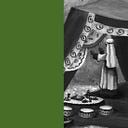Accept the Necessary Agonies of Life
Our ups and downs reflect a deeper truth and open a door
Disappointment is the great gift of the Beloved.’ Tony Parsons
We experience failure and success in equal measure, just as we will experience up and down, right and wrong, good and bad and he and she in this world of duality, this world of reflected light.
As someone once said, what goes up must come and down. It may seem like we get more of one than the other, but if we take a mean average, we don’t. Although I am talking over eons of time.
‘Through deep reflection we come to discover that we are on a wheel in which everything repeats itself over and over again in differing images...All of our dream world that we see as progressive comes within the parameters of this perfectly balanced and exactly neutral state which serves only to reflect another possibility.’ (Parsons)
It is a fundamental law in a universe where experience and experiencer are seen as separate.
Ultimately, our journey (in reality there is none although this is the only way we can conceive in our time-bound minds) is to travel deep within away from our sense of separation towards the oneness that is our birth right, destiny and true home.
I was writing recently about the nature of dilemma, perhaps the apogee of the divided state.
Thomas Moore, the theologian, writes about the possibilities offered by the insoluble dilemma, a sinking deep within to the true self.
Our error is that we are looking in the material world for that which cannot be found here.
Permanent peace does not exist in this world, unless you move beyond the dual nature of life.
Rumi spoke of meeting in a field ‘beyond right and wrong’; Aurobindo, the south Indian sage, when stung by a scorpion simply said: ‘Ah, a kiss from my Beloved!’
The two great teachers of non-duality or advaita, Ramana Maharshi and Nisargadatta, both died from painful cancers, but without complaint or identification with the separate self.
To them, all is one and they lived and died in that awareness. They seemed to have crossed some kind of invisible barrier into an altered state.
Milarepa, the former murderer, arsonist and later Tibetan saint, when robbed while in his cave, chased his assailant down the mountain only to give him his shirt as well.
Eckhart Tolle in a deep depression in his London flat described his sudden awakening as like a plug coming out. Something shifted or collapsed and everything looked different thereafter.
The late Adi Da Samraj taught us a deep truth: ’Spiritual life begins when seeking fails.’
In other words, the one who is looking for something has to disappear. Tolle got to a point of such desperation that something snapped within him.
For most of us it seems there is a journey — or rather the appearance of one — and it is gradual. To glimpse the divine can blind the unprepared, like St Paul on the road or Moses confronted by a burning bush.
It seems that preparation is required and I suspect those who have sudden awakenings have readied themselves in other lifetimes.
Rumi alluded to this graduation as moving from ‘lover, beloved to finally Love itself.’ What that takes, say the Sufis, is polishing the mirror of the heart so the divine sun can be reflected in it.
Adyashanti, a modern spiritual teacher, puts it this way:
‘Make no mistake about it — enlightenment is a destructive process. It has nothing to do with becoming better or being happier. Enlightenment is the crumbling away of untruth. It’s seeing through the facade of pretense. It’s the complete eradication of everything we imagined to be true.’
That’s the disappointment. What we thought was true turns out to be false, reality something else altogether and far more radical and demanding than we had hoped.
This awakening is not about our comfort or success, but rather a clear seeing that can shock us to the core:
‘ Think not that I am come to send peace on earth: I came not to send peace, but a sword.
‘For I am come to set a man at variance against his father, and the daughter against her mother, and the daughter in law against her mother in law.’ Matthew 10:34–35
Christ’s words are the spiritual equivalent of one of those bargain sale signs, ‘Everything Must Go!’ He was clearly saying ‘your world is not mine and if you want to come with me, expect a wild ride!’
He even disputed the legitimacy of his own mother, pointing to a deeper truth, that his real kin were those doing the work, those prepared to become nothing.
That’s right. Everything must go, all our attachments, concepts and beliefs are up for question and possible shedding. Not least those about ourselves. If you want to experience God or Self, become as nothing, become the empty little child.
It is our fear of letting go that keeps most of us in purgatory. Even our attempts to do good can be seen as evidence of someone who doesn’t understand themselves. We are simply too full of our own imaginings to see clearly.
As Tony Parsons, the English advaita teacher, writes: ‘No conditions need to be fulfilled. The infinite is not somewhere else waiting for us to become worthy, it is all there is.’
There can appear to be something over there called enlightenment which we must strive to reach but that is simply the illusory task of an apparent individual who has forgotten he is already All That Is.
But there is a paradox here. Nisargadatta, the fiery Bombay sage, who used to flay mentally audacious western seekers in his upstairs room, continued to practice the disciplines of his religion and serve his guru even when it was no longer necessary.
‘I am neither perceivable nor conceivable,’ he would say.
Our cultural and religious context is part of our earthly life and to be respected after all. We may no longer need our training wheels, but they may need us.
In Siddhartha by Herman Hesse (a must read for any seeker) the protagonist takes on various roles — lover, merchant, ascectic — before collapsing in despair at a life he finally sees was wasted.
Eventually, spent and exhausted, he sits beneath a tree and watches the river reflect the emptiness in his own soul:
‘With his eyes closed, he slipped towards death. Then, out of remote areas of his soul, out of past times of his now weary life, a sound stirred up.’
‘Om! He spoke to himself: Om! And again he knew about Brahman, knew about the indestructibility of life, knew about all that is divine, which he had forgotten.’
Siddhartha experienced ‘the grace of suffering’ and woke up. He woke up from his identification with his self, sees it is selfish, and goes on to rediscover his kinship with all.
The ‘foolish, childlike people’ he sneered at become beloved to him; he learns the human pain of having a son who rejects and despises him; he learns from the wise old ferryman; and finally he learns from the river itself.
Despair comes for most of us at one time or other yet if we are wise we can use it as a portal to something finer, a Self that existed all along.
The great sages tell us to ‘go back the way you came’ or as Rumi put it, ‘return to the root of the root of yourself’.
The root is consciousness, the root of the root awareness itself. Last words.
In the final paragraph of his book The Open Secret, Tony Parsons says this:
‘But from whatever and whenever this insight is communicated, it has no connection with end-gaining, belief, path or process. It cannot be taught but is continuously shared. Because it is all that is no-one can lay claim to it. It needs not to be argued, proven or embellished, for it stands alone simply as it is, and can only remain unrecognized and rejected, or realized and lived.’
© simon heathcote

